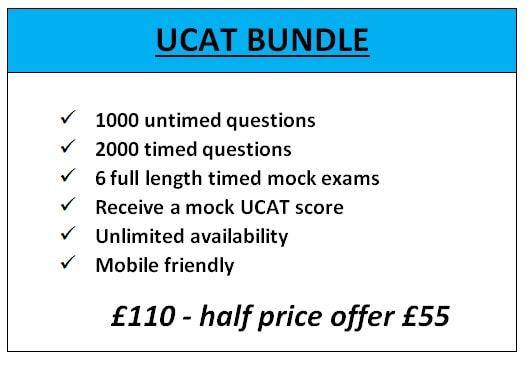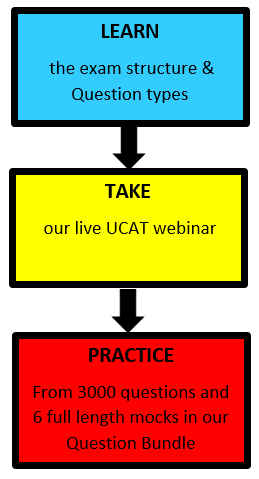NORTHERN IRELAND'S LEADING UCAT TUTORING SERVICE. best value on the market
COMPANY |
IN PERSON COURSE |
ON LINE COURSE |
SUCCESS TUTORING |
£150 |
£140 |
UCAT PEOPLE |
N/A |
£179 |
THE MEDIC PORTAL |
£175.5 |
£153 |
MEDIC MIND |
£179 |
£149 |
Testimonials
3/07/21. Doing the practice timed questions on the webinar was so helpful and then going over the answers where Emma explained how you would approach them went very well. DL
3/07/21. Small group size, plenty of examples and a very detailed handbook for afterwards. S McK
17/07/21. Definitely found it so helpful, Emma took time to involve all of us and there was plenty of time for questions
1/07/22 Nicky explained the techniques very clearly and we had lots of practice. It was only after the course that I appreciated how helpful it really was. Definitely doing it helped my confidence and it was the best value webinar out there
20/08/22. I would fully recommend doing a UCAT course. This test is just as crucial as your GCSE, A level's and your interview. I failed my UCAT the first time and had to take a year out. To be honest I did two different UCAT courses and they definitely helped me achieve my mark of 2980. The courses give you the knowledge and skills to take on this time pressured test. Don't underestimate it. KML
19/07/23 Before attending the course in Methody , my score was in the low 2000. I don't know how I would of done so well without Ben helping me. Thank you JK
18/08/23 I did the webinar and it was very helpful. Throughout the whole day, Emma was very reassuring and explained each section methodically. I liked the chance to practice with selected questions and we were given really useful tips on timing and how to break down the questions. Recommend doing the UCAT webinar

In a recent survey, 100% of our students rated our course 5 star.







